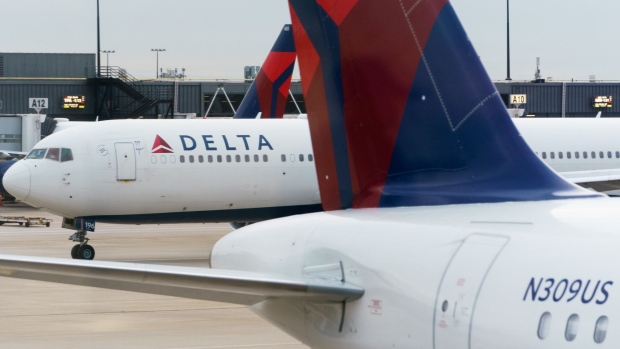Jan 13, 2022
Delta Air Lines Pilot Shortage Prompts Cuts to Regional Service
, Bloomberg News

(Bloomberg) -- Delta Air Lines Inc. has trimmed regional flying by as much as 25% for the first half of this year because of a pilot shortage, a lingering effect for several carriers from the early days of the coronavirus pandemic.
When airlines moved to replace thousands of pilots who took incentives to retire early in 2020, the carriers turned first to their traditional hiring pool at regional partners. Pandemic-related disruptions to training at those smaller airlines contributed to the shortage by preventing first officers from being promoted to captain.
Delta expects to add 100 to 200 pilots a month into next year, Chief Executive Officer Ed Bastian said on an earnings call Thursday. The company hasn’t had a shortage of pilots or applicants at its mainline operations, he said.
Read more: Delta Air Sees 2022 Profit, Even Amid Covid
The airline is “pretty confident” that by the second half of this year, it will be able to restore services to communities that were cut in the first half, President Glen Hauenstein said on the call.
Delta’s mainline operation hasn’t exited any cities, although its regional partners, which ferry passengers from midsize and small cities to major hubs, have left “a handful of markets,” Bastian said. Airline Weekly reported last month that Delta had left three locations and was suspending another 10 routes.
Rules blocking airlines from ending flights to cities under federal aid provisions have expired, Delta said.
United Airlines Holdings Inc. has grounded 100 regional jets because of the same problem, CEO Scott Kirby said in December, and it has discontinued service to an unspecified number of cities.
©2022 Bloomberg L.P.